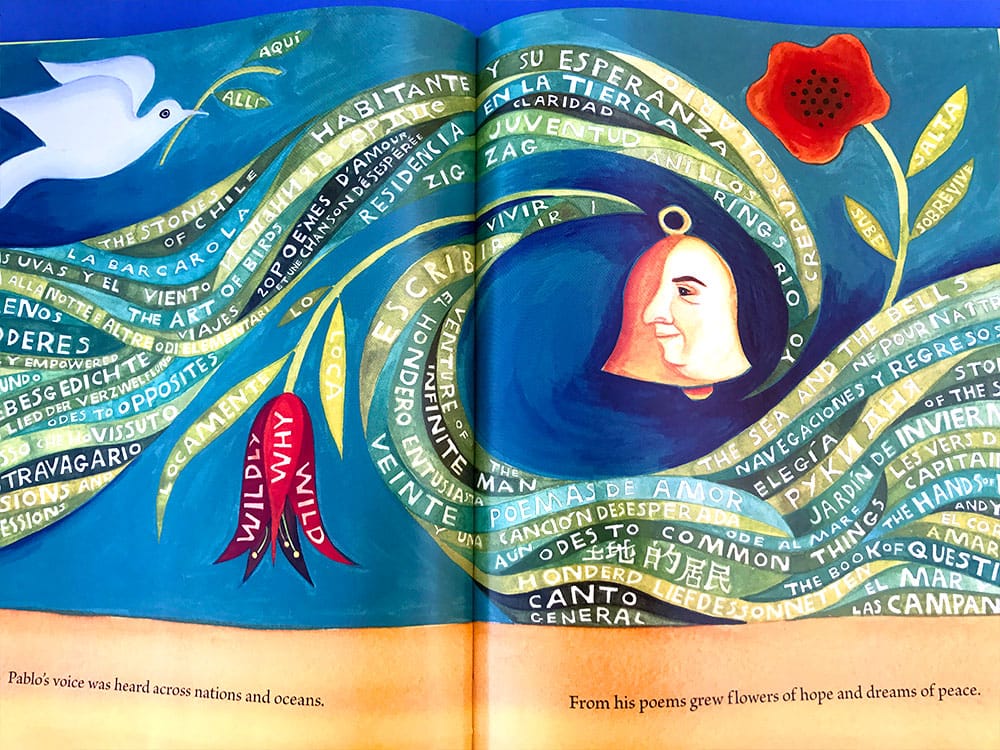“But I love your feet
only because they walked
upon the earth and upon
the wind and upon the waters,
until they found me.”
Pablo Neruda (July 12, 1904 – September 23, 1973) was the pen name and, later, legal name of the Chilean writer and politician Neftalí Ricardo Reyes Basoalto.
Leaning into the afternoons
I cast my sad nets
towards your oceanic eyes.
There in the highest blaze my solitude lengthens and flames,
its arms turning like a drowning man’s.
I send out red signals across your absent eyes
that smell like the sea or the beach by a lighthouse.
You keep only darkness, my distant female,
from your regard sometimes the coast of dread emerges.
Leaning into the afternoons I fling my sad nets
to that sea that is thrashed by your oceanic eyes.
The birds of night peck at the first stars
that flash like my soul when I love you.
The night gallops on its shadowy mare
shedding blue tassels over the land.
Neruda’s production is exceptionally extensive. For example, his Obras Completas, constantly republished, comprised 459 pages in 1951; in 1962 the number of pages was 1,925, and in 1968 it amounted to 3,237, in two volumes. Among his works of the last few years can be mentioned Cien sonetos de amor (1959), which includes poems dedicated to his wife Matilde Urrutia, Memorial de Isla Negra, a poetic work of an autobiographic character in five volumes, published on the occasion of his sixtieth birthday, Arte de pajáros (1966), La Barcarola (1967), the play Fulgor y muerte de Joaquín Murieta (1967), Las manos del día (1968), Fin del mundo (1969), Las piedras del cielo (1970), and La espada encendida.





